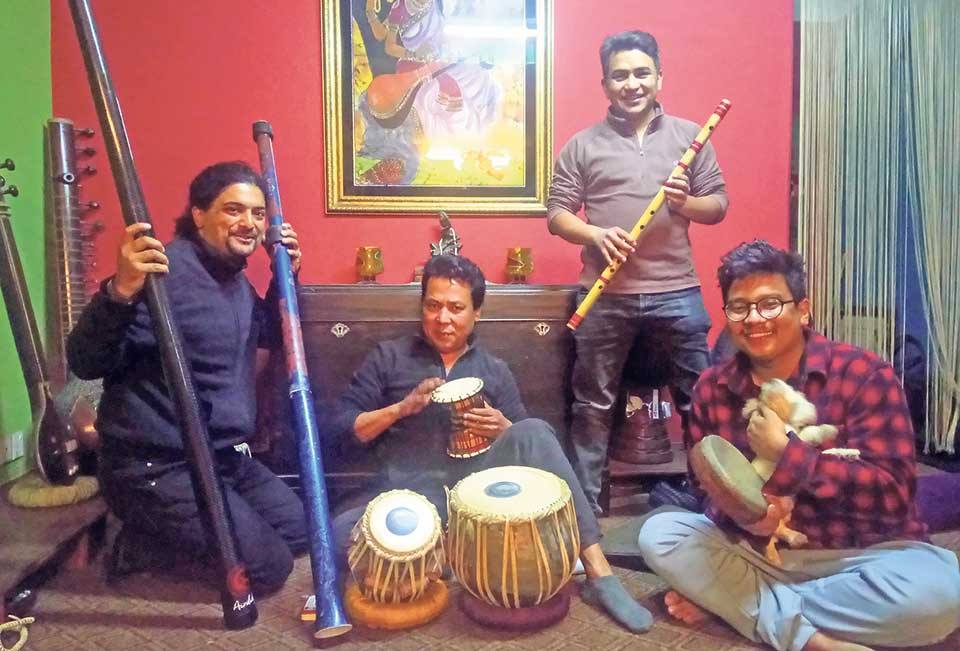
European Parliament slams UAE for 'destabilizing' Somalia over...

What have you prepared for the festival?
A unique and an inspiring experience of how music, presented in the most simplest way, can bring forth so much energy both for social action and personal well-being.
What are your expectations from this year’s Gharana Musical Festival?
Salil: I have played in all editions of the GMF. This is Nepali Quartet’s first time performing. But, there is no expectation as such; there is only free expression through our music. We are trying out all possibilities to work with our spectrum of music from various traditions, skills, and mastery to give the audience a unique experience this year.
Tell us more about your music style.
Salil: I play didgeridoo, which is an Australian aboriginal music instrument, and I mix it with mainstream Nepali music.
Navaraj: I have played and recorded with many Nepali as well as Indian classical musicians along with Cuban, European and Asian musicians of international fame. I express my music with intricate sounds and mathematical magic of Tabla.
Umesh: I have a background of playing Indian and Nepali classical music. I play different kinds of Ragas and blend multiple Gharana styles in his music.
Ashesh: I am yet to set a particular style so my music is more free and expressive with multiple instruments that I play. I am introducing Khanjira this year and hopeful about it.
The festival ends on November 4 with performance from various artists, with exciting collaborations to look forward to in different venues around Kathmandu.






































